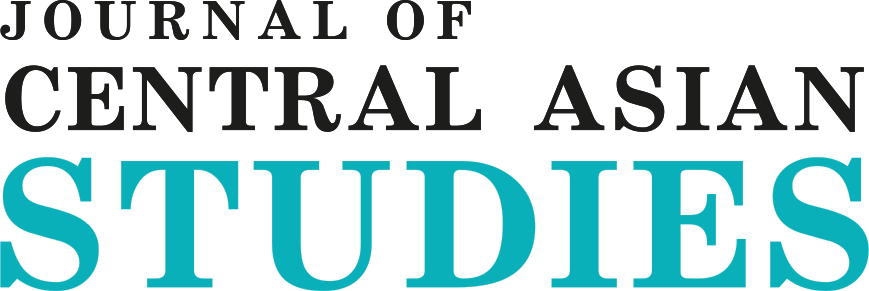K-Pop as a Main Tool of Korean ‘Soft Power’ Towards Central Asia
DOI:
https://doi.org/10.52536/2788-5909.2023-4.02Keywords:
K-pop, Korean popular culture, soft power, Central Asia, South KoreaAbstract
The Republic of Korea plays one of the leading roles in the global economy and is a dynamically developing country. As one of the key elements of South Korea's success, many researchers in their works note the so-called concept of "soft power". The strategy of the contemporary notion of "soft power" of the Republic of Korea is based on the dissemination of traditional cultural values and pop culture. South Korea places a great emphasis on the "soft power" of culture, which helped it shape a positive image and create its South Korean attractive brand on the world stage.
The main focus of this paper is to examine the essence of the Korean popular culture and its implementation in Central Asian states. Toward this objective, this research first explores the emergence and diffusion of Korean popular culture, especially with regards to globalization, soft power and value change. Further, its impact on CA will be considered in different perspectives. The research concludes that the implementation of Korean popular culture works as an efficient ‘soft power’ policy instrument for South Korea's cultural diplomacy.
References
Joo, J. (2011). Transnationalization of Korean Popular Culture and the Rise of “Pop Nationalism” in Korea. The Journal of Popular Culture, 44: pp 489–504
Ko, J. (2009). Trends and Effects of the Korean Wave in Korea. Asean academic conference on pop culture formations across East Asia in the 21st century: hybridization or Asianization. Burapha University, Thailand. Chonburi: Burapha University, - pp.7-14
Kim, J. Y. (2007). Rethinking media flow under globalisation: rising Korean wave and Korean TV and film policy since 1980s. -Warwick Research Archive Portal. Welcome to Warwick Research Archive Portal - Warwick Research Archive Portal., URL://http://wrap.warwick. ac.uk/1153/ (Accessed : 15.10. 2023)
Hyejung, J. (2007). The Nature of Nationalism in the “Korean Wave”: A Framing Analysis of News Coverage about Korean Pop Culture. Conference Papers - National Communication Association, (Retrieved from Communication & Mass Media Complete database: 15.12.2020)
Sue Jin Lee. (2011). The Korean Wave: The Seoul of Asia. The Elon Journal of Undergraduate Research in Communications, Vol. 2, No. 1
Doobo S. (2006). Hybridity and the rise of Korean popular culture in Asia. Media, Culture & Society, 28(1), 25-44. doi:10.1177/0163443706059278
Ryoo W. (2007). Globalization, or the Logic of Cultural Hybridization: The Case of the Korean Wave. Confer¬ence Papers - International Communication Association, pp 1-27. (Retrieved from Communication & Mass Media Complete database: 15.12.2020)
Donga.com. (2011). Korean Wave` affecting many aspects of life in Kazakhstan June. URL: //https://www.donga.com/en/article/all/20110629/401600/1/Korean-Wave-affecting-many-aspects-of-life-in-Kazakhstan (Accessed: 14.10. 2023)
Olivia I.P., Bondaz A. (2014). South Korea trying to improve its nation brand in Central Asia. URL:http://www.cen¬treasia.eu/sites/default/files/publication (Accessed: 14.10.2023)
Simons Jon. (2003). Popular Culture and Mediated Politics: Intellectuals, Elites, and Democracy. Media and the Restyling of Politics: Consumerism, Celebrity and Cynicism. Ed. John Corner and Dick Pels. London: SAGE, 171. Print.
Nye Joseph. (2004). Soft Power - The Means to Success in World Politics. New York: Public Affairs
M. P. Pershina (2017). "Soft power" in the foreign policy of the Republic of Korea and the PRC. Ethnic society and interethnic culture, 2(104), pp 109-118
V. O. Zhidkov. (2014). Elements of the South Korean soft power. DISKURS-PI, 11(2), Pp 172-177.
Smolina, V. A. (2016). Politics of "soft power" as an instrument of geopolitical influence of the Republic of Korea.
Nye J. S. (2009). South Korea’s Growing Soft Power. Project Syndicate. URL: https://www.projectsyndicate.org/commentary/south-korea-sgrowing-softpower?barrier=accessreg (Accessed: 17.11.2023)
Valieva, J. (2018). Cultural Soft Power of Korea. Journal of History Culture and Art Research, 7(4), pp 207-213 doi:http://dx.doi.org/10.7596/taksad.v7i4.1837
Kudaibergenova R.E. (2016). Deistvie “myagkou sily” Yuzhnoi Korei v Kazakhstane (Действие «Мягкой силы» Южной Кореи в Казахстане) / Kudaibergenova R.E., Beisenbayeva А.B. // KazNUBulletin. Orientalseries. No2 (77). Pp 63-69.
"Kazakhstan eager to learn Korea's 'can-do' spirit". The Korea Times. 16 October 2011. (Accessed: 17.11.2023)
"'Korean Wave' affecting many aspects of life in Kazakhstan". The Dong-a Ilbo. (Accessed: 15.10.2023)
Assembly of people of Kazakhstan. "Korean Wave Sweeps Across Kazakhstan". URL: //https://assembly.kz/en/ (Accessed: 18.11.2023)
"This Former SM Entertainment Trainee Is Now A Top Star in a Different Country". Koreaboo. 9 July 2018. (Accessed: 18.11.2023)
Koreiski kulturnyi festival v Kazakhstane: K-Pop, K-Street Dance и K-Food Новости » ДК LIFE 2023 (Корейский культурный фестиваль в Казахстане: K-Pop, K-Street Dance и K-Food Новости » ДК LIFE 2023) URL://https://dknews.kz/ru/dk-life/296768-koreyskiy-kulturnyy-festival-v-kazahstane-k-pop-k (Accessed: 20.12.2023)
Nargiza Ryskulova. (2018). Koreiskaya volna: kak k-pop I doramy zakhvatyvayut Kyrgyzstan. (Корейская волна: как кей-поп и дорамы захватывают Кыргызстан). URL://https://www.bbc.com/russian/features-44712665 (Accessed: 20.12.2023)
Korea-net official website URL// https://m.korea.net/russian/AboutUs/KOCIS#
Ainura Akmatalieva. (2021). Central Asia and South Korea: Seeking Opportunities for Increased Cooperation URL://https://cabar.asia/en/author/ainuraakmatalieva2 (Accessed: 20.12.2023)
Koreiskaya volna v Kyrgyzstane. (Корейская Волна в Кыргызстане). “Central Asia-South Korea” Cooperation Forum. URL://https://www.centralasia-korea.org/web/pages/gc83972h.do (Accessed: 20.11.2023)
-K-POP World Festival in Uzbekistan. (2019). Embassy of the Republic of Korea in the Republic of Uzbekistan URL:/http://overseas.mofa.go.kr/uz-ru/index.do (Accessed: 19.11.2023)
Koreiskaya volna v Uzbekistane. (Корейская Волна в Узбекистане). “Central Asia-South Korea” Cooperation Forum. URL:/https://www.centralasia-korea.org/web/app/subMainRsa05.do (Accessed: 20.11.2023)
Introducing Hallyu – the Korean Wave. (2020) URL: /http://www.newscentralasia.net/2020/09/14/introducing-hallyu-the-korean-wave/ (Accessed: 17.11.2023)
Koreiskaya volna v Tajikistane. (Корейская Волна в Таджикистане). “Central Asia-South Korea” Cooperation Forum. URL: /https://www.centralasia-korea.org/web/app/subMainRsa03.do (Accessed: 20.11.2023)
Downloads
Published
Issue
Section
License
Copyright (c) 2023 Bakytzhanova A., Tuleshova L.

This work is licensed under a Creative Commons Attribution 4.0 International License.









 Open content is licensed under the CC-BY
Open content is licensed under the CC-BY 